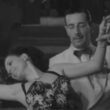By Anna Malitowska
An ethicist’s view
Contrary to the erroneous but popular opinion it is not an ethicist’s task to moralize. An ethicist is not a moralist, or, at least, that is not his only function. In contrast to a moralist an ethicist does not limit his activity to imposing prohibitions and orders but also tries to find justifications for them.
In other words, an ethicist assumes that moral judgments are not made on the basis of a subjective “whim” but are a kind of an appeal directed toward others who can accept it because it is based on certain arguments. In order to be accepted those arguments must be intersubjectively communicable and verifiable, or at least the arguers must intend it. If the interlocutors renounce such efforts, the moral discourse is threatened with becoming a game based on coercion and power.
In that respect a judge has a lot in common with an ethicist. Verdicts given by judges can be accepted on the basis of certain arguments called criteria. The difference between an ethicist and a moralist reflects, more or less, the difference between a judge who makes a judgment on the basis of criteria and a judge whose judgment amounts to a statement “I like it” or “I do not like it”. That is also where science enters judgment making – the scientific aspect of judging grows in proportion to the number of criteria which can be subjected to intersubjective control.
A judge is not a god
Even our intuition tells us that there is a difference between the judgment: “One could do anything only for blond dancers!” and the judgment: “This dance should not be performed in this manner!” The first judgment is an entirely subjective opinion with no pretensions to validity. The person who makes the judgment about blond dancers, assuming that that person is sane, will not require that anyone else admits it is correct, and we will not demand from that person any arguments in the strict meaning of that word.
However, the person who opines: “It should not be danced in this way!” expects something more. The person wants the verdict to bind other people. It is that wish that has to be explained with the help of proper arguments, should someone demand them. If a judge makes a judgment because he “likes” or “does not like” something, the judge is assuming godlike prerogatives. His verdicts cannot be questioned but only accepted. If a thing cannot be questioned it is irrational. Let us render to God the things that are God’s, let us seat him with honors in the audience but not in the jury!
Does that mean that a judge does not have the right to a particular dislike of a dance couple? Or that the specific aspects of a given dance can be overlooked for the sake of the magic that transcends the stiff rules? Well, that is the difference between a judge and ordinary audience members: a judge can transpose the “liking” of something into “appreciating a thing on the basis of certain features” which can be enumerated and graded. And if certain ‘metaphysical’ features, such as the inexpressible magic exuded by a dance couple, accompany the standard ones, they are the icing on the cake which itself must consist of clearly defined and explicable ingredients. If that is not the case, let us abandon the organization of sports competitions. Let us also not pull the wool over people’s eyes by pretending that judgment takes place there.
A judge is not above morality
We cannot make use of certain expressions such as: a competition, sports rivalry, or judgment making without respecting the attributes of those phenomena. Those attributes arise from the traditional use of those words and from certain general, legal and ethical, social assumptions.
Thus, a judge’s attributes, according to the judging tradition and social expectations regarding that profession, are impartiality and independence.
An inwardly and outwardly independent judge, that is one who has a subjective sense of freedom and real (objective) freedom from external pressure, should act (evaluate) impartially. Impartially here means to judge everyone in the same manner, i.e. on the basis of the same criteria.
That can also be expressed in the following way. A judge is a certain social role. A role is a pattern of behavior or a set of certain norms pertaining to the social position or function one fulfills. Independence and impartiality are norms which characterize the role of a judge.
Individuals fulfill different roles in social space; those roles can be conflicting. For example, a judge can be a supervisor of a person with whom he also has a friendly relationship and, in a situation in which he must give the person a reprimand which will result in the person losing the job the judge will experience a discomfort due to the impossibility of fulfilling two contradictory norms of behavior arising from the above-mentioned roles (of a supervisor and a friend).
Let us also note that should that friend-employee behave in an impeccable manner, the conflict might have never become apparent. Still, it would be reasonable to assume that if two persons in an organization maintain a friendly relationship and occupy, simultaneously, uneven positions in their professional relationship, they are especially subject to such dilemmas. Therefore, an analysis of the risk of such threats is helpful in protecting against them and, what follows, of minimizing possible damages. The damages, or negative effects, can vary from psychological discomfort during the decision making to subjecting public interest (here: the interest of the organization) to a particular interest (here: the friend’s interest).
Because of the ‘interests’, i.e. certain benefits, at stake here the conflict of roles within an organization or institution is called a conflict of interests. It appears when an individual who has taken upon himself certain duties is not able to fulfill them or to realize the values associated with the assumed social role. Thus, an expert auditor who audits a company in which he has shares might not be objective with respect to the client. Similarly, the interests of a judge who evaluates dancers whom he had prepared for the competition are in conflict.
A judge in the situation of a conflict of interests
In the context of judging dance competitions a conflict of interests is a certain continuum of situations which pose a threat to judges’ objectivity: their independence and impartiality. The situations range from those forbidden not only by ethics but also by law, through those regulated only by various codes of ethics which, in given cases, are stricter than law, to situations which do pose a threat to objectivity but are, for some reason, unavoidable and therefore it would be hard to prohibit them.
If a judge would take a fee or accept a costly gift from a competition participant in return for favorable judging we would probably have no doubts that such an action would constitute an abuse, or even illegal corruption.
Also, we do not usually question the threat posed to objectivity by a situation in which a judge must evaluate a close relative. That conviction is corroborated by appropriate regulations in the rules for judging and in judge codes of ethics which prescribe the exclusion from the jury of those adjudicators who are participants’ relatives, spouses, or life partners.
There is also a set of cases which, for some reason, escape the categorical prohibitions. Even the strictest rules will not, obviously, eliminate those conflicts of interests which arise from informal relationships such as being a distant relative, a colleague, a business partner, or a friend.
It is sometimes argued that the dance community was formed in such a manner that most specialists fulfill two roles which can collide: the roles of a judge and a teacher or coach, and it is difficult to find judges who are not related to the participants either by professional (teacher-student) or emotional (coach-student) ties. Therefore, even though such obligations and relationships endanger the objectivity of such people in their roles of judges, the nature of dance practice makes it impossible to ban judges with these kinds of conflicts of interests from juries.
However, the arguments about the specificity of dance practice should not be treated more seriously than they deserve. Let us consider the following issues.
It is true that sometimes a conflict of interests is hard to avoid. It happens, for example, that the scarcity of specialists in an area of knowledge makes it necessary for them to evaluate the work (e.g. publications) of people with whom they are somehow (e.g. professionally) related. In such cases the need for an evaluation of the subject matter of the work has priority over the risk of a lack of objectivity. However, such a situation is perceived as an exception to the rule the rightness of which is not questioned. In other words, the fact that certain situations are unavoidable does not mean that they become less suspicious from the ethical point of view, and the fact that they do remain unethical and problematic is a sufficient reason for a change of practice, not necessarily in an ad hoc manner, but so as to gradually diminish the gap between the actual state of affairs and the desired, ideal situation.
Thus, to perceive the need to create an exception to the rule after an analysis of its practicability is one thing, and to say that there is no rule and that the practice is justified is another. It is about the logics of reasoning and action: a judge should retain independence and impartiality. That is why he should not help prepare dancers for a competition in which he will evaluate them. For the same reason a judge should not accept any offers which might have an impact on the objectivity of his judgment and no-one should make such offers.
It is only at this point that we should ask if there are good reasons to create an exception to the rules, in particular cases.
Perhaps one good reason to create an exception to the first rule would be the fact that there are not too many people with sufficient qualifications to evaluate professional dance couples, who do not also teach them. That is a good reason to sometimes allow participants’ teachers to become judges (e.g. during professional dance competitions). Is that not, however, also a good reason to allow participants’ coaches to evaluate them? After all, the fact that it is difficult to find non-teaching, qualified judges does not mean that it would be equally hard to find a jury which would not include teachers with especial investment in particular dancers’ careers. Employing a standard, random teacher differs from engaging a couple’s regular coach. The threat of a loss of the necessary objectivity is different in those cases.
Likewise, is the above situation, i.e. a deficit with respect to qualified judges who do not teach, a sufficient justification for giving and taking lessons from a given teacher in the period before a competition, that is when it is already known that the teacher will be a judge in that competition? That would definitely be an exception to the rule which forbids a judge to accept offers aimed at lessening his objectivity. Perhaps it would be possible to find reasons for which we should overlook the lessons given to competition participants by their prospective judges in the period from the time of publishing the names of the judges. One example could be a proof that the judges would not survive without those lessons (because they do not have another source of income), another that the dancers have already forgotten how to dance and only a particular judge-teacher could help them. I hope that my irony is clear enough.
Even if some conflicts of interests can be tolerated we should know which ones. That presupposes, firstly, an ability to identify conflicts and analyze the threats which may result from them, as well as to counteract those threats.
As we have seen, counteracting conflicts does not always entail an introduction of prohibitions into codes or undertaking disciplinary actions but, on the other hand, it cannot boil down to wringing one’s hands in despair over the practice. Sometimes the best way to protect the community against the negative effects of a conflict is to reveal and monitor the problem. For example, an obligation can be imposed on competition judges (and participants) to reveal who they have worked with during a certain time before a competition. That would enable greater control of the situation in which judgment takes place.











Beautiful article. Brilliantly written. All judges and dancers should read this – the harsh reality……….wow!